Genetic Overlap Between Endometriosis and Autoimmune Disorders
Women with endometriosis may face a higher risk of developing several immune-related conditions, according to a large study led by Rahmioglu and Zondervan, published in Human Reproduction. Using data from more than 270,000 women in the UK Biobank, the researchers…
Key Points Lay SummaryEndometriosis Immunopathology: The Macrophage Connection
Macrophages and tiny signaling particles called extracellular vesicles (EVs) are emerging as central immune players in how endometriosis develops and persists. Together, they shape the immune environment around endometriotic lesions, helping them survive, spread, and resist the body’s defenses. In…
Key Points Lay SummaryWhich Comes First: Endometriosis or Depression?
A short communication in the format of letter to the editor, recently published in the Archives of Gynecology and Obstetrics highlights the potential immunological link between endometriosis and depression. Endometriosis is a highly prevalent gynecological disorder characterized by chronic inflammation…
Key Points Lay SummaryImmune Cell Infiltration and Genetic Drivers in Endometriosis Development
The development of endometriosis is closely linked to immune cell infiltration, where immune cells and their secreted cytokines play a key role in driving inflammation and the formation of lesions. Studies highlight increased neutrophil infiltration in ectopic tissues, which release…
Key Points Lay SummaryPotential New Biomarker Could Help Assess Endometriosis Severity
High levels of two proteins, 'perforin 1' and 'major histocompatibility complex class I-related chain A (MICA)' are associated with the stage of endometriosis, found a new study published in the scientific journal Immunological Investigations. They could therefore be used as…
Key Points Lay SummaryEndometriotic Exosomes Suppress Immune Defense and Promote Ectopic Tissue Survival
In a study published in the Journal of Immunology, Björk et. al investigated how NKG2D-mediated cytotoxicity affects the function of endometrios cells enviroment in endometriosis, highlighting its role in disease progression and its potential as a target for therapeutic intervention. This study explores the role of exosomes secreted by…
Key Points Lay SummaryUnraveling the Immune System's Role in Endometriosis
Endometriosis is often driven by complex immune system interactions. Dysregulated immune cells, including macrophages, neutrophils, and natural killer cells, play a significant role in promoting inflammation and lesion progression. Researchers from China Led by Dr.Xu conducted a study to investigate…
Key Points Lay SummaryUnviling the role of PD-1-PD-L1 Pathway in Endometriosis Progression and Therapy
The role of immune system in Endometriosis, a chronic inflammatory disease is complex, involving both protective and harmful effects. A key player in this process is PD-1 (programmed cell death protein 1), a protein found on T cells that regulates immune responses by inhibiting…
Key Points Lay SummaryNew horizons in endometriosis and immunity
Academicians led by Dorota Suszczyk from Lublin, Poland have published their recent comprehensive narrative review on immunity and endometriosis in International Journal of Molecular Sciences. Recent evidence points to the importance of co-inhibitory immune checkpoints which could be related to endometriosis mechanisms…
Key Points Lay SummaryRegulatory T cells influence on endometriosis development
While the exact cause of endometriosis is still debated, various theories are being investigated. One approach focuses on the immune system. Regulatory T-cells (Tregs) are crucial in suppressing inflammatory immune responses and preventing autoimmune diseases, allergies, infections, and cancer. Knez…
Key Points Lay SummaryChronic stress may be involved both in the pathogenesis and progression of endometriosis
Chong Lu and associates from Shangai, China have published their novel research on chronic stress and endometriosis in a recent issue of International Journal of Molecular Sciences. During the natural course of endometriosis many patients are under chronic stress, which…
Key Points Lay SummaryExploring the role of thyroid function in endometriosis and polycystic ovary syndrome
Endometriosis, polycystic ovary syndrome (PCOS), and thyroid disorders are prevalent among women of reproductive age, yet their exact impacts on reproductive health and underlying mechanisms remain unclear. Given the close association of these conditions through the endocrine system, Kirkegaard et…
Key Points Lay SummaryVicious cycle: The promoting role of previous endometriosis foci for new lesions
An experimental animal study on the pathogenesis of endometriosis from the Institute for Clinical and Experimental Surgery, Saarland University, Hamburg has been published in a recent issue of International Journal of Molecular Sciences. Endometriosis is a well-known common gynecological ailment…
Key Points Lay SummaryPeritoneal endometriosis and Peritoneal Immunity
The peritoneum is an important immune barrier where, under normal conditions, it is balanced. External stimuli cause pro-inflammatory responses. To bring balance to this undesired situation, anti-inflammatory factors come into play. However, in patients with endometriosis, cytotoxicity of T lymphocytes,…
Key Points Lay SummaryAutoimmune Disorders in Women with Endometriosis May Impair Embryo Implantation
The retrospective study by Noemi Salmeri reports the effect of concomitant autoimmune disorders on the ability of the endometrium to support embryo implantation in women with endometriosis who underwent assisted reproductive technology (ART) treatments. The study involved 600 women with…
Key Points Lay SummaryEndometriosis disease modelling via induced pluripotent stem cells has been successful
J. Julie Kim, S. Y. Hung Research Professor and Professor of ObGyn, Reproductive Science in Medicine, Northwestern University, Chicago, Illinois, has delivered a conference at the Annual International Medical Conference of the Endometriosis Foundation of America held in New York on April 1-2,…
Key Points Lay SummaryAntiinflammatory lactoferrin molecule and antibody levels in endometriosis patients
A Japanese clinical research team led by Dr. Kaya Mori-Yamanaka from Shiga University of Medical Science Hospital, Otsu, Shiga, Japan, published their pioneering study on the role of serum lactoferrin and anti-lactoferrin antibody levels in endometriosis in a recent issue of…
Key Points Lay SummaryFrom Finland : How to increase health issues in endometriosis patients
Dr. Henna-Riikka Rossi and associates from the University of Oulu, Oulu, Finland have published their recent prospective cohort study on possible existing comorbidities of endometriosis patients in the journal Fertility and Sterility. Endometriosis is an estrogen-dependent chronic ailment affecting about…
Key Points Lay SummaryIs the pathogenesis of endometriosis hidden in immune-related gene profiles ?
Yanan He and colleagues from the Department of Gynecology, Harbin Medical University, China have published their manuscript on potential immune markers in endometriosis in a recent issue of “Journal of Immunology Research” Pathophysiologic mechanisms involving endometriosis are complicated and have…
Key Points Lay SummaryMachine learning based potential biomarkers
To explore potential biomarkers for an accurate diagnosis and treatment, and to elucidate the mechanism of endometriosis, Yi Huang et al, analyzed gene differences between eutopic and ectopic endometrium and the status of the immune microenvironment., and published their results in the…
Key Points Lay SummaryWhat causes pelvic pain? Androgens or estrogens?
A comparison between women and men reveals that women suffer more pelvic pain. This reality raises the possibility of the pain-relieving effect of testosterone or androgens. It would be a wise solution to investigate how androgens affect pain at different…
Key Points Lay SummaryT-cell-targeted immunotherapy and immune checkpoint inhibitors for the treatment of endometriosis
Dr. Monika Abraimuk and colleagues from Poland published their review on "the importance of immunity in endometriosis" in a recent issue of the medical journal “Cellular Signaling”. A great challenge in contemporary medical issues is endometriosis which still lacks a…
Key Points Lay SummaryA call for mast cells from endometriotic lesions
Endometriosis is a well-known hormonal-dependent inflammatory disease. But what type of inflammatory cells is responsible, and when does estrogen take part, are questions that have not been answered yet. In the study conducted by Alison McCallion et al, the role…
Key Points Lay SummaryAn important matter to revise: Immune system changes in endometriosis
Endometriosis is a multifactorial disease with unclear and obscure pathogenetic mechanisms. In their review, Chopyak et al. revised the immunopathogenic pathways that are proven and/or thought to be responsible for disease development and progression. The article was published in the…
Key Points Lay SummaryImmune cells in peritoneal endometriosis
Dr. Burcu Ersoy and associates from The University of Sydney, Australia, published their interesting study on surgically removed peritoneal endometriosis tissues in the journal named "F&S Science". It is still a dilemma how ectopic endometrial tissues attach to the peritoneum, persist…
Key Points Lay SummaryAnkylosing Spondylitis and Endometriosis
There are several theories contributing the development of endometriosis: one of the proposed pathophysiological mechanisms is the abnormality in immune and inflammatory system. Several immunologic diseases coexist with endometriosis depending on the common immunologic characteristics such as Tumor necrosis Factor…
Key Points Lay SummaryAn important enigmatic promoter of endometriosis: immune dendritic cells
Dr. Larinha and associates from a Brasilian academic center have published their comprehensive review on the role of immune dendritic cells in the pathogenesis of endometriosis in a recent issue of the "Journal of Reproductive Immunology". Antigen-presenting dendritic cells of…
Key Points Lay SummaryFull understanding the role of nervous system in endometriosis could yield new gateways to novel therapeutic approaches
Dr. Velho and associates from Berlin, Germany have recently published their comprehensive review on the role of the nervous system in endometriosis in a recent issue of “International Journal of Molecular Sciences”. Understanding the role of the peripheral nervous system…
Key Points Lay SummaryHerbicide Alters Immune System on the Route to Endometriosis
A popular environmental pollutant and herbicide named 2, 3, 7, 8-Tetrachlorodibenzo-p-dioxin (TCDD) and its receptor named aryl hydrocarbon receptor (AHR) have been suggested for causing endometriosis, but the mechanism was not clear. In the study conducted by Mahsa Tanha et…
Key Points Lay SummaryEndometriosis and Rheumatoid Arthritis, Could There Be a Link?
Patients with endometriosis have a higher risk of rheumatoid arthritis according to a study published in the journal Rheumatology. This finding suggests that rheumatologists should be especially mindful of the possibility of underlying endometriosis when treating women with rheumatoid arthritis.…
Key Points Lay SummaryCombined contraceptive pills and immune system cells in the endometriotic cyst wall
Dr. Wanwisa Waiyaput and associates from Mahidol University, Bangkok, Thailand, have published their results on the immune regulatory cells of the surgically resected endometriotic cyst walls in the “Journal of Ovarian Research”. The defective immune response is believed to have…
Key Points Lay SummaryImmune-mediated conditions and endometriosis in adolescents and adults
The most common presenting complaints of endometriosis are mainly pelvic pain and infertility, commonly in relation to the menstrual period. Affected women demand therapy for these symptoms. Immunologic diseases such as autoimmune and/or inflammatory diseases, allergies, asthma, previous mononucleosis infection,…
Key Points Lay SummaryEndometriosis and the risk of Systemic lupus Erythematosus: A report from Taiwan
Systemic Lupus Erythematosus (SLE) is an autoimmune disease in which the immune system attacks its own tissues, causing widespread inflammation and tissue damage that affects mostly women, with an M:F ratio of 1:9. Recent evidence has also shown that endometriosis is…
Key Points Lay Summary"Complement" of immune system and endometriosis therapeutics
The complement system is part of the body’s immune system, and plays integral roles in the recognition and clearance of pathogens, apoptotic and necrotic cells. It is composed of over 50 proteins with soluble activation precursor components, regulators and cell…
Key Points Lay SummaryThe origin of macrophages determines the fate of endometriosis
Macrophages are diverse cells. They can present in all tissues of the body to perform crucial functions in immunity, homeostasis, repair and many more. Macrophages change their role depending on signals from their environment, and can therefore have a variety…
Key Points Lay SummaryEndometriosis and Inflammation: How to Treat it?
Women with endometriosis have systemic and localized inflammation within eutopic and ectopic endometrial tissues found in a study published in the "American Journal of Reproductive Immunology". More importantly, the study also found that the inflammation caused by the disease could…
Key Points Lay SummaryEnhanced local and systemic inflammatory cytokine mRNA expression in women with endometriosis
Endometriosis is not only characterized by the implantation of endometriotic tissue outside of the uterine cavity but also necessitates an impaired immune response. It is suggested that abnormal immunological mechanisms causing the dysfunction of immune cells and their mediators are…
Key Points Lay SummaryImmune System, Cytokines and Endometriosis
Endometriosis is an estrogen-dependent chronic disease. Diagnosing endometriosis is difficult because the signs and symptoms vary considerably. Therefore, the discovery of a reliable non-invasive diagnostic biomarker would represent a major advance for the clinical diagnosis of endometriosis. It has been…
Key Points Lay SummaryWhite blood cell neutrophils link to immunosuppressive environment in ovarian endometrioma
Recently the contribution of neutrophils to the pathogenesis of endometriosis has been suggested. Several observations fuelled this suggestion, such as the accumulation of neutrophils in the peritoneal fluid of ovarian endometriosis; neutrophil extracellular traps were found in the peritoneal fluid of…
Key Points Lay SummaryNew Insights on Infertility and Low Success Rates of Assisted Reproduction in Women with Endometriosis
The fluid surrounding immature eggs waiting to mature and be fertilized by a sperm to lead to pregnancy is different in women with endometriosis compared to those without, according to a study published in Molecular Biology Reports. This could explain,…
Key Points Lay SummaryThe role of microbiota in the etiopathogenesis of endometriosis
Endometriosis is an estrogen-dependent disease that is commonly diagnosed in reproductive-aged women. Although many advanced types of research about the etiology, differential diagnosis and treatment have been performed, it still remains an enigmatic disease. Dr. Bedaiwy, a scientist and physician…
Key Points Lay SummaryEndometriosis signaling: the role of IL-34
An increasing number of studies have suggested that the pathogenesis of endometriosis is mediated by cytokines, such as interleukin (IL)−17, which promoted the formation and progression of endometriosis by up-regulating angiogenesis and pro-inflammatory cytokines secretion. IL-34 is a newly described…
Key Points Lay SummaryNatural killer cells receptor expression in endometriosis
Increasingly, studies have reported that endometriosis pathogenesis is related to defect in immune functions. The data also points to the impaired function of natural killer (NK) cells, leading to less cytotoxic NK cell activity in endometriosis. Similar to B and…
Key Points Lay SummaryImmune environment of endometriosis
The results from the past decade of research have shown that an altered pro-inflammatory immune environment in endometriosis is believed to contribute to the pathophysiology of the disease. Because of changes in the immune microenvironment in the disease state, the…
Key Points Lay SummaryM1 and M2 macrophages in ovarian endometriomas
Macrophages play an essential role in the immune response during inflammation and have been implicated in diseases such as inflammatory conditions and cancers. Broadly, macrophages are classified into M1 and M2. The M1 macrophages are pro-inflammatory, and in contrast, the…
Key Points Lay SummaryEndometriosis is linked with the most common autoimmune diseases
How endometriosis develops is not completely clear, but the involvement of the immune system has been heavily suggested. Women with endometriosis share some common autoimmune disorders, therefore, a potential link between autoimmune diseases and endometriosis has been investigated over the…
Key Points Lay SummaryHeme impairs macrophage phagocytosis
Heme is an iron-containing molecule that carries oxygen in the blood and also serves many essential biological proteins. It is released from ruptured erythrocytes during hemolysis. If not chelated, heme can cause harmful oxidative damage and inflammation. Thus, heme is…
Key Points Lay SummaryAssociation between endometriosis and autoimmune disorders is not clear yet
Endometriosis is a common disorder that may affect up to 10% of women of reproductive age. The causes of endometriosis are largely unknown but abnormalities in immunity have been suggested to explain the origin of ectopic endometrial tissues. Evaluation of…
Key Points Lay SummaryControl on endometriosis progression by a "tyrosine kinase inhibitor"
B cells, which are important players of the immune system, are increased in the blood and peritoneal cavity of endometriosis patients. Activation of B cells and the presence of anti-endometrial autoantibodies have been also been described in women with endometriosis,…
Key Points Lay Summary"Endometriosis", "Fibromyalgia" and "Autoimmune diseases"
Greenbaum et al. from Israel, investigated the prevalence of and the association between endometriosis, fibromyalgia and autoimmune diseases in a large population database and described healthcare resource utilization in affected women. Their study has been published in the "American Journal…
Key Points Lay SummaryThe link between autoimmunity and endometriosis
A popular model to explain the etiology of endometriosis is Sampson’s theory of retrograde menstruation. In this model, the viable endometrial tissue is spread and attached to the peritoneal cavity through the fallopian tubes during menstruation, resulting in an inflammatory…
Key Points Lay SummaryCould a defect in phagocytosis cause endometriosis?
The macrophages are important immune cells in the peritoneal cavity because they function to remove aberrant cells or tissues by the process of phagocytosis. In endometriosis, there is an increased number of peritoneal macrophages and heightened production of inflammation molecules…
Key Points Lay SummaryCorrelation between Treg cells and peritoneal lesions in women with ovarian endometrioma
It is increasingly suggested that defective immune response is responsible for the survival and development of ectopic endometrial cells into endometriosis. In women with endometriosis, the immune system fails to create an inflammatory process that destroys endometrial cells at the…
Key Points Lay SummaryA newly found relationship between estrogen signalling and immune dysregulation in endometriosis
It is believed that endometriosis progression is "at least partly" due to dysregulation of immune cells resulting in the poor clearance of ectopic endometrial debris. In particular, aberrant macrophage function was found to be important in the establishment of endometriosis, since…
Key Points Lay SummaryAnti-inflammatory cytokines: a new horizon in endometriosis with possible clinical relevance
Scientists led by Dr. Li from Shangai PRC, have made a comprehensive review of anti-inflammatory cytokines related to the pathogenesis of endometriosis in a recent issue of Cellular and Molecular Life Sciences. Inflammation is important in the pathogenesis of endometriosis,…
Key Points Lay SummaryThe relationship between periodontal disease and endometriosis
Thomas et al. have recently studied the association between endometriosis and periodontal disease which may share a common pathogenesis, and have published it in the Journal of Human Reproductive Sciences. The authors screened a total of50 women; 25 with and 25…
Key Points Lay SummaryLocal inflammation and disease severity in endometriosis
During inflammation, immune cell receptors recognize endogenous molecules called danger-associated molecular patterns (DAMPs) or ‘alarmins’. This process reflects tissue damage and is mediated upon cell death in the condition of strong inflammation. HMGB1 and IL-33 are important DAMP molecules. Recently,…
Key Points Lay SummaryImmune dysregulation in endometriosis
The connection between endometriosis and the immune system has long been proposed. However, to date, there is no real consensus on whether immune adaptations actually facilitate endometriotric lesion progression or they are a consequence of endometriosis re-occurrence. Thus, this article…
Key Points Lay SummaryProgrammed-cell death pathway and immune dysfunction in endometriosis
Endometriosis is an estrogen-dependent, immune-associated disease. Women with endometriosis have different proportions of the activated forms of immunocompetent cells, such as T cells and macrophages compared to those from women without. Immune cell dysfunction in the uterine and abdominal cavity…
Key Points Lay SummaryAnother Study Suggesting That Endometriosis May Be a Disease Associated With Immune System Dysfunction
An immune system protein called TGF-β in the peritoneal fluid or fluid that lubricates the lining of the abdominal wall and pelvic cavity may be creating an environment favorable for the formation of endometrial lesions. This is according to a…
Key Points Lay SummaryDetecting endometriosis using peripheral blood
Laparoscopic visualization of endometriotic lesions with histological confirmation is the gold standard for the diagnosis of endometriosis. However, this diagnostic procedure, due to the need for laparoscopy and variability of disease/symptoms, can have a major delay up to 8-10 years…
Key Points Lay SummaryInflammatory molecules promote the migration and invasion of endometriosis cells
Increasing scientific evidence has shown that the immune and inflammatory mechanisms play a central role in the progression of endometriosis by allowing a permissive environment that allows migration, adhesion, proliferation, and invasion of endometrial cells in ectopic regions of the…
Key Points Lay SummaryAltered Immunity in Endometriosis
In recent years, there has been increased attention on the role of immune system in endometriosis development. Normally, immune reactions are supposed to destroy endometrial cells seeding in the peritoneal cavity. Nonetheless, in endometriosis, these cells are able to evade,…
Key Points Lay SummaryEndometriosis in a Man as a Rare Source of Abdominal Pain
Endometriosis occurs when a tissue resembling endometrial glands and stroma grows in ectopic sites, commonly causing infertility and pain. Endometriosis has largely been found in women of reproductive age. However, in extremely rare cases, it is also found in men…
Key Points Lay SummaryEndocrine and inflammatory factors in current understanding of endometriosis
There are three forms of endometriosis: peritoneal, ovarian, and deep infiltrating. All three forms consist of endometriotic lesions containing endometrial glands, stroma, nerves, blood vessels, and inflammatory cells. Endometriosis symptoms can be accounted by these elements and the involving organs.…
Key Points Lay SummaryA review on the role of immune cells on the pathogenesis of endometriosis
Immune cells play a vital role in the homeostasis against infectious pathogens but also in the pathogenesis of endometriosis. Recent research has suggested that different immune cells have unique roles in this pathogenesis. Neutrophils, which are typically the primary acute…
Key Points Lay SummaryElevated Neutrophil Traps in Deep Infiltrating Endometriosis
Neutrophils are a part of the innate immune system and act as a first-line host defense system by phagocytosis, intracellular killing and more recently describes mechanism involving extracellular killing by means of neutrophil extracellular traps (NETs). These traps are defined…
Key Points Lay SummaryThe effect of anti-rheumatic drugs on endometriosis therapeutic outcomes
Endometriosis can be described as an autoimmune disease because the abnormalities associated with T and B cell function and various autoantibodies. Although endometriosis has not been found to associate with some severe autoimmune disorders such as systemic lupus erythematosus, it…
Key Points Lay SummaryEFA Medical Conference 2017: "Cells Are the New Cure" Presentation by Dr. Max Gomez
Dr. Max Gomez is an award-winning broadcast journalist, CBS News Medical Correspondent, and a presenter at the EFA 2017 Medical Conference. Dr. Gomez’s presentation was titled “Cells Are the New Cure: The Cutting-Edge Medical Breakthroughs That Are Transforming Our Health.”…
Key Points Lay SummaryThe role of the B lymphocytes in endometriosis: A systematic review
Insight into the role of an inflammatory response in endometriosis has sparked further study into the role of different immune cells and their causal relationship to the pathogenesis of endometriosis. Several recent studies have found an association between aberrant immune…
Key Points Lay SummaryEndometriosis : A Whole Body Disease
Endometriosis is a disease that impacts multiple parts of an individual’s body. Seminars in Reproductive Medicine recently published a paper by Alderman III et al. entitled “The Systemic Effects of Endometriosis” explores the various comorbidities that can affect individuals suffering…
Key Points Lay SummaryImmune Response in Endometriosis and Regulatory T cells
The adaptive immune system is crucial for many diseases. Lymphocytes, including T cells, are particularly important in the adaptive immune system. Previous research suggested that defective immune response could play a role in endometriosis. The hypothesis proposes that the immune…
Key Points Lay SummaryT-Cell Dysfunction May Worsen Endometriosis
Researchers from the Kyoto Prefectural University of Medicine, Japan, have found that T regulatory lymphocytes (Treg) may be the reason for the formation of the chronic inflammatory environment involved in endometriosis, a study published in The Journal of Clinical Endocrinology &…
Key Points Lay Summary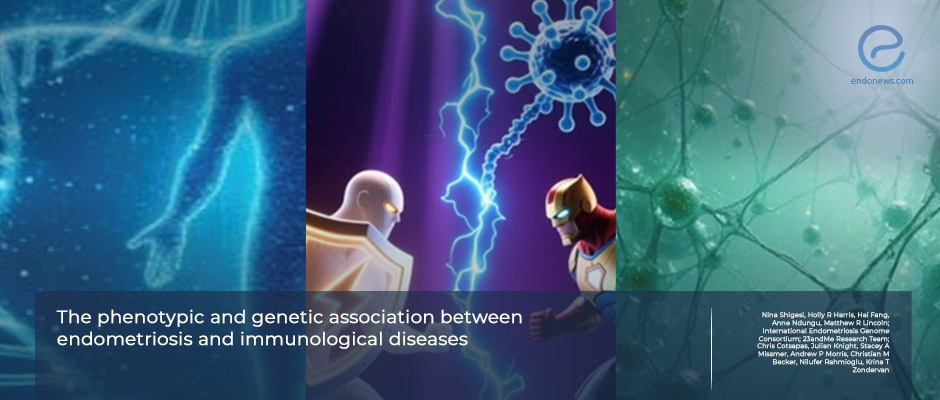
 By Ayse Ayhan
By Ayse Ayhan
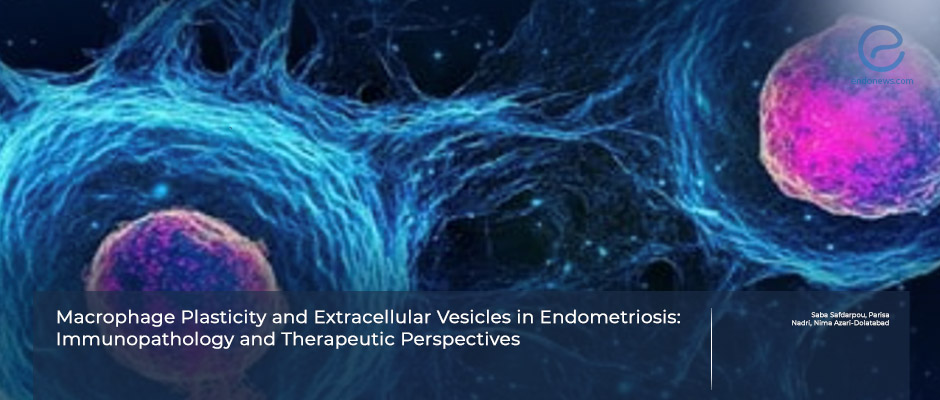
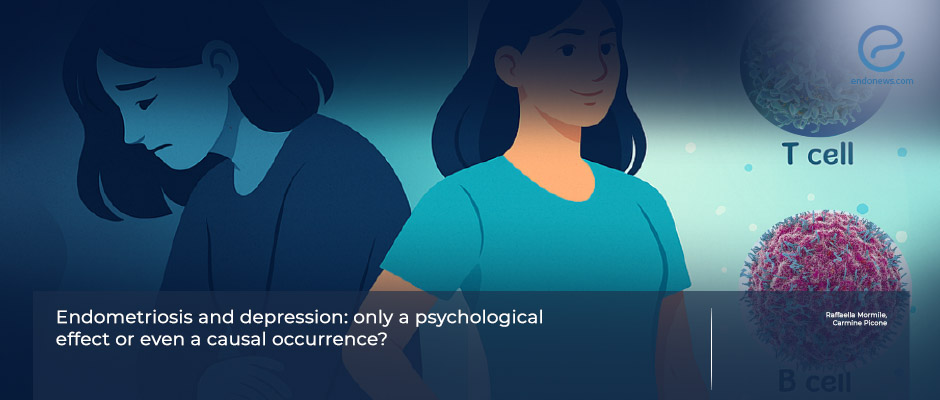
 By Nasuhi Engin Aydin
By Nasuhi Engin Aydin
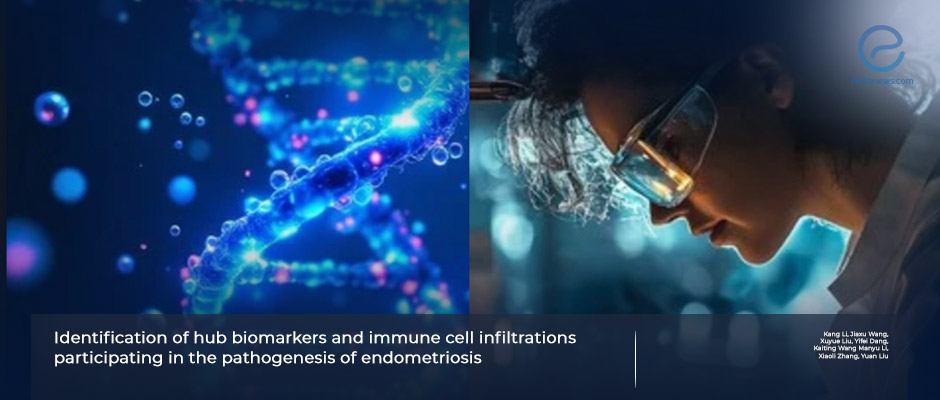
 By Eylül GÜN
By Eylül GÜN
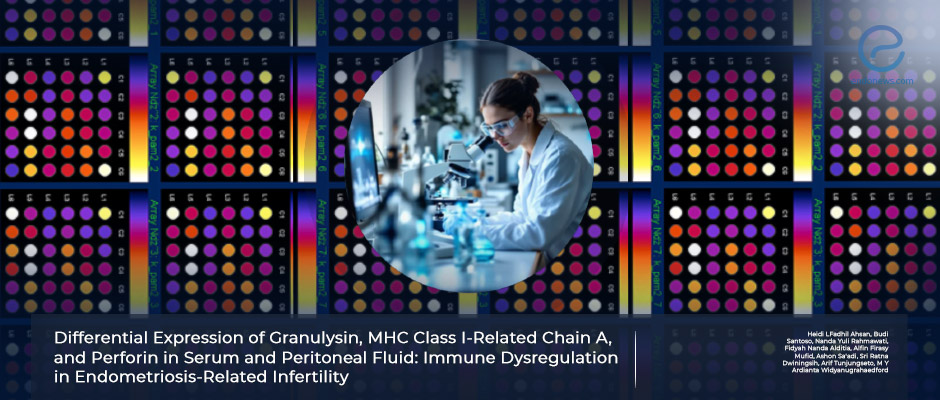
 By Özge Özkaya
By Özge Özkaya
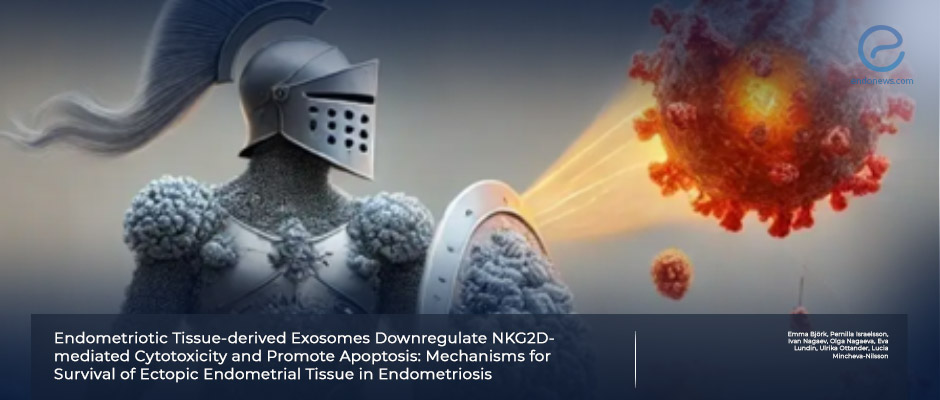
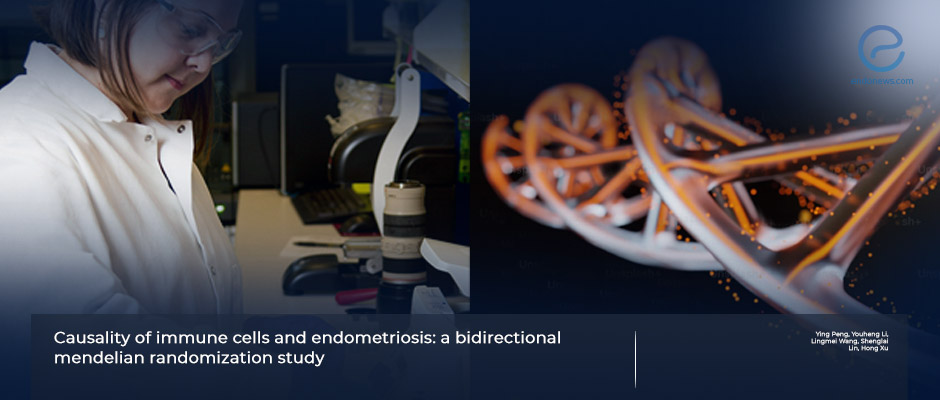
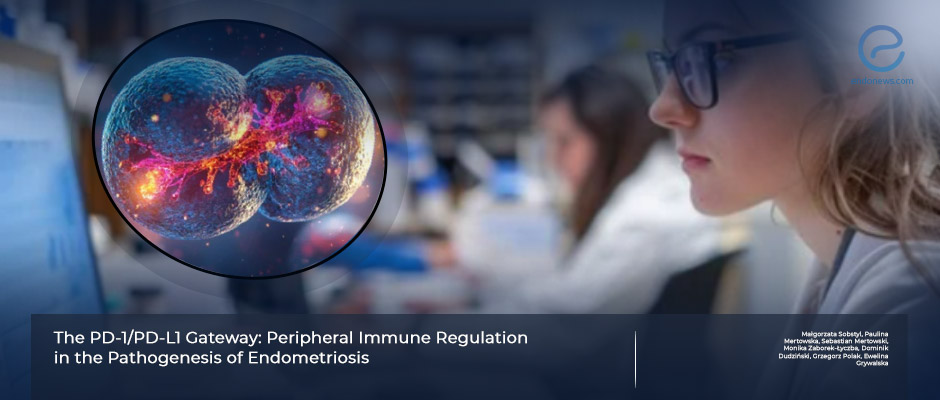

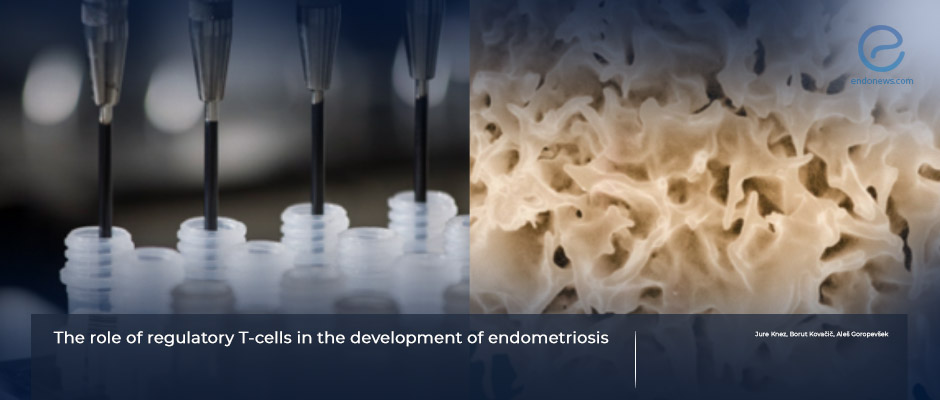


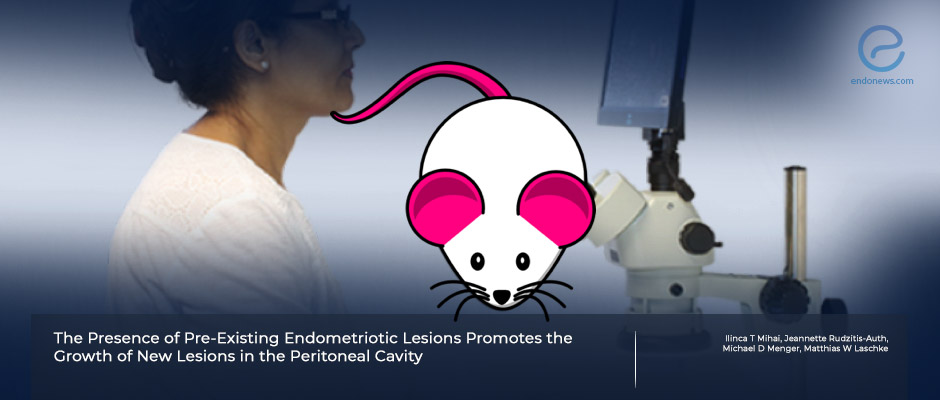

 By Selma Oransay
By Selma Oransay

 By Bahar Yuksel
By Bahar Yuksel











 By Hale Goksever Celik
By Hale Goksever Celik








 By Yu Yu
By Yu Yu

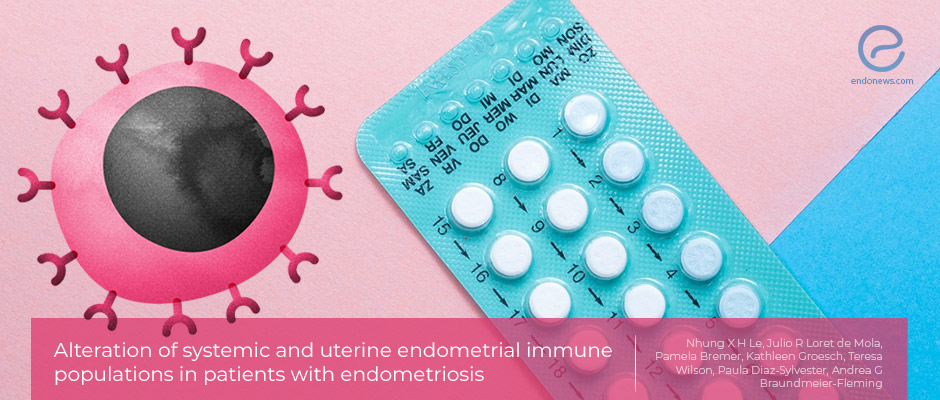

 By Ellen Tumimbang
By Ellen Tumimbang

 By Dr. Youngran Park
By Dr. Youngran Park
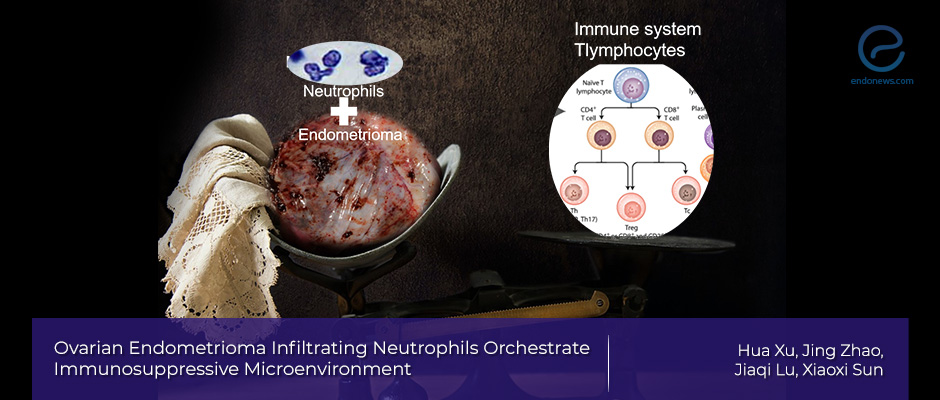


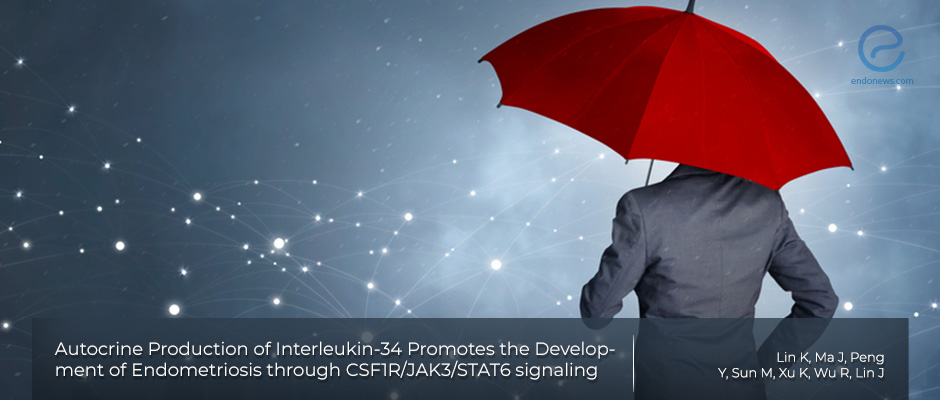
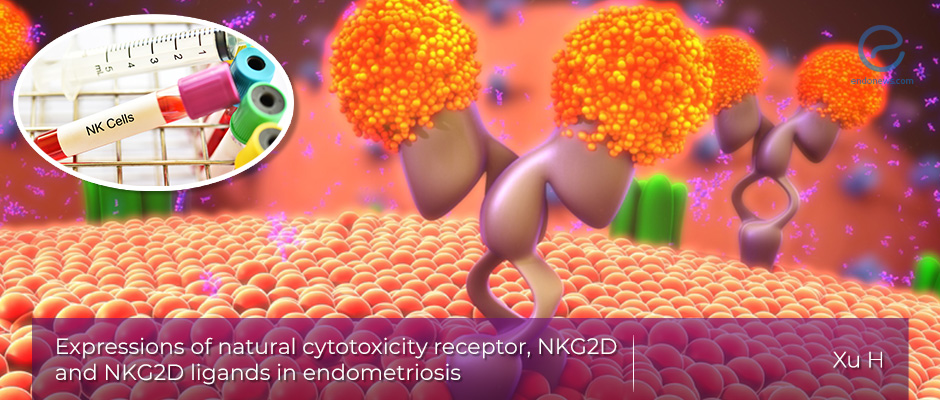
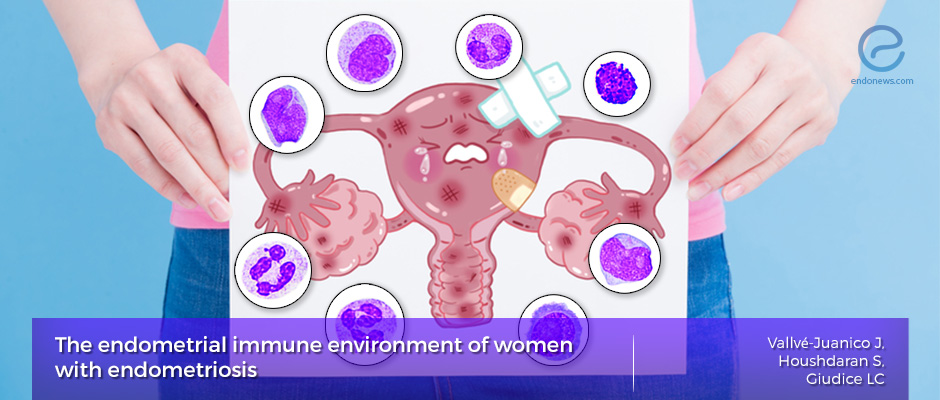


 By Demet Candaş Green
By Demet Candaş Green



 By Irem Onur
By Irem Onur

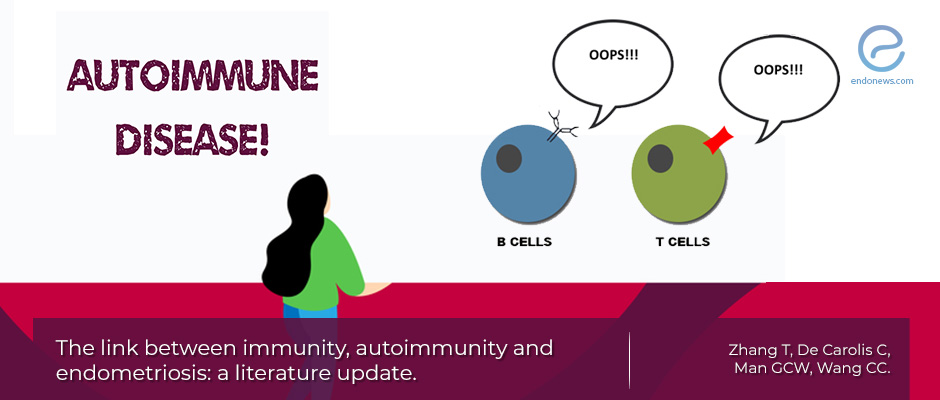

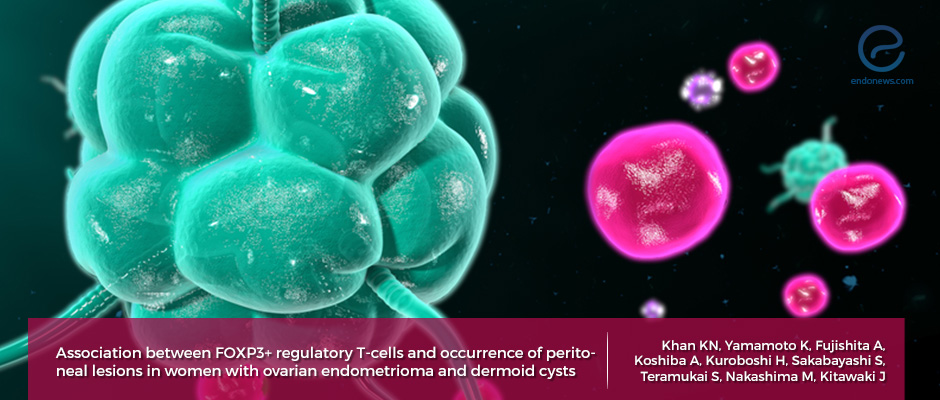


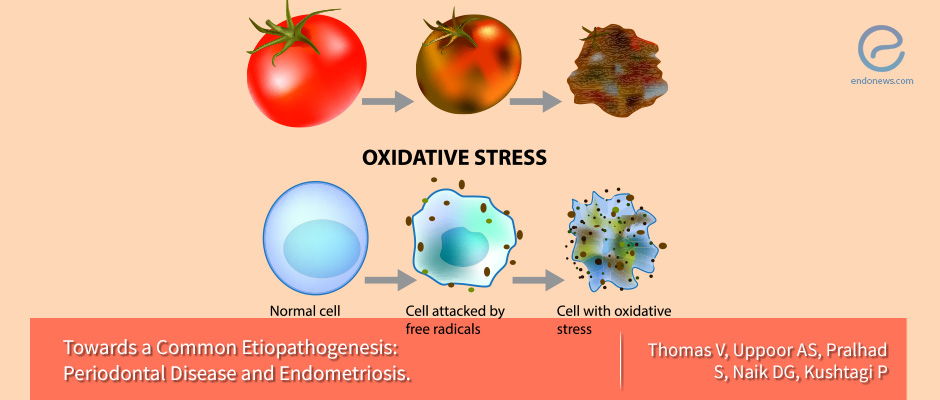
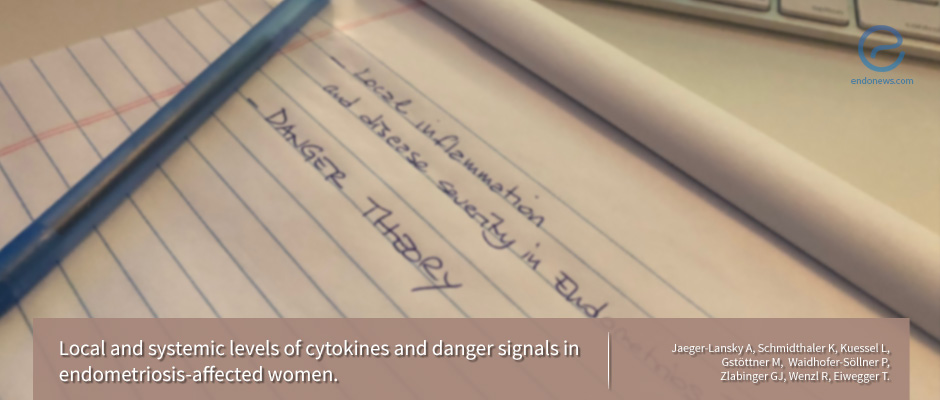
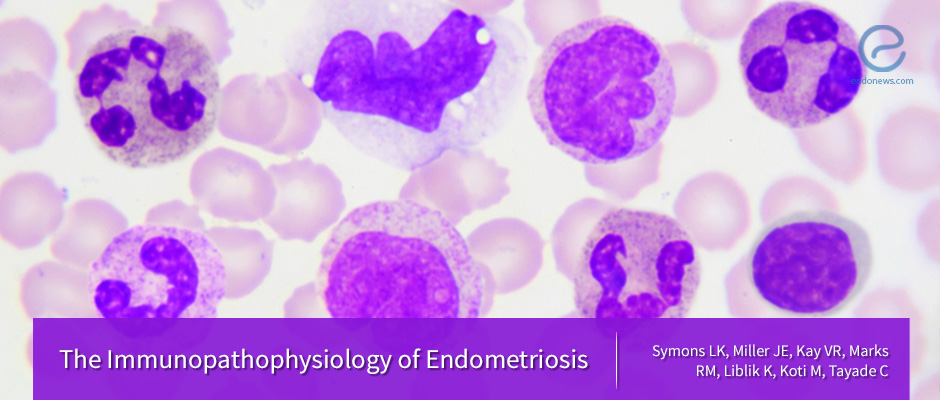



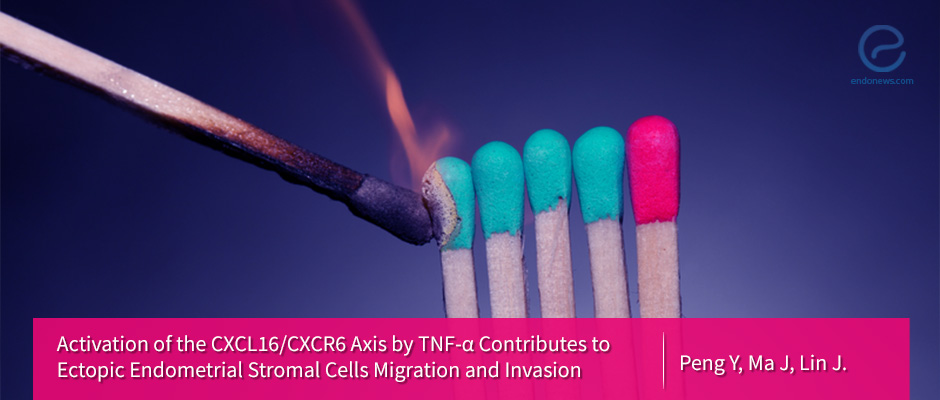
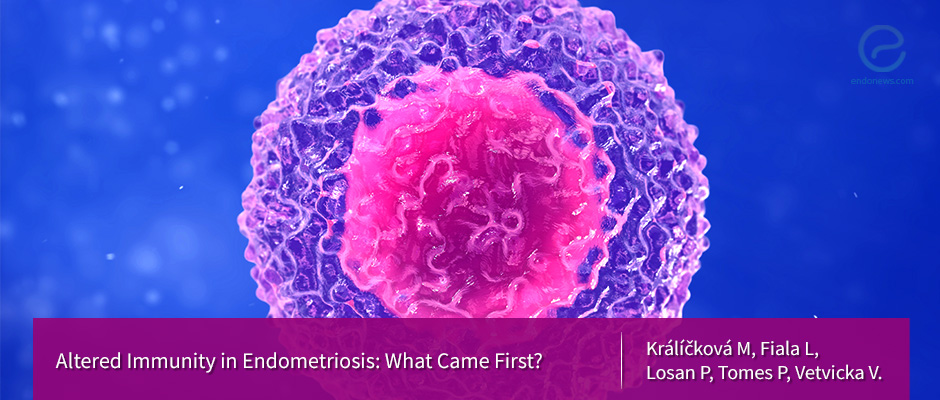



 By Murat Osman
By Murat Osman



 By Kasthuri Nair
By Kasthuri Nair



